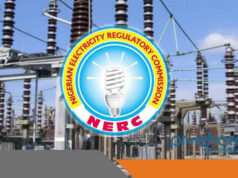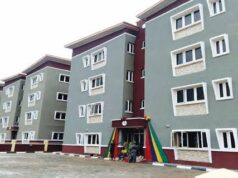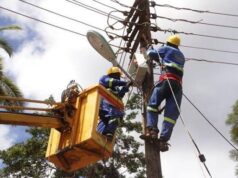
President of the AFDB, Dr. Akinwumi Adesina
The African Development Bank announces the disbursement of $500 million (N766.7 billion) to Nigeria, aimed at catalyzing essential reforms in the power sector.
During the inaugural workshop on the feasibility study for Nigerian Battery Energy Storage Systems (BESS), AFDB’s Director General for Nigeria, Dr. Abdul Kamara, elaborated that the funding, part of its $1 billion Economic Governance and Energy Transition Support Programme, aims to foster a more efficient and resilient energy sector dedicated to delivering electricity for the populace.
Kamara emphasized that the ongoing second phase reflects the bank’s unwavering commitment to ensure electricity accessibility across all communities nationwide.
He noted that the BESS initiative, orchestrated by the Transmission Company of Nigeria (TCN), serves as a critical facilitator in providing electricity to nearly 90 million individuals still lacking access to power.
“Africa harbors nearly sixty percent (60%) of the world’s foremost solar resources while only accounting for a mere two percent (2%) of global energy storage capability. This disparity not only poses a challenge but also presents a remarkable opportunity. Effective battery storage is essential to harness the complete potential of our renewable energy assets and to supply dependable, consistent power throughout the continent.”
He pointed out that battery storage is already witnessing substantial advancements in South Africa, with a 1,400 Megawatt-hour battery storage initiative that bolsters grid stability and solar integration, while Kenya’s Olkaria geothermal-battery hybrid is providing steady energy to millions.
“Now, Nigeria stands ready to embark on a courageous journey in that same direction. Additionally, through our One Million Dollar grant under the Africa Energy Sector Technical Assistance Programme (AESTAP), we are backing the implementation of the Electricity Act, fostering state-level electricity markets, and enhancing governance.
Meanwhile, the Managing Director of TCN, Engr. Dr. Sule Ahmed Abdulaziz, acknowledged that the feasibility study is both timely and presents an opportunity to explore not only the technical and commercial aspects of BESS but also to assess the institutional preparedness, operational protocols, and capacity-building priorities necessary for successful execution.
“From grid code and safety standards to workshop training and asset management frameworks, we must guarantee our planning today is thorough and visionary,” he asserted.











